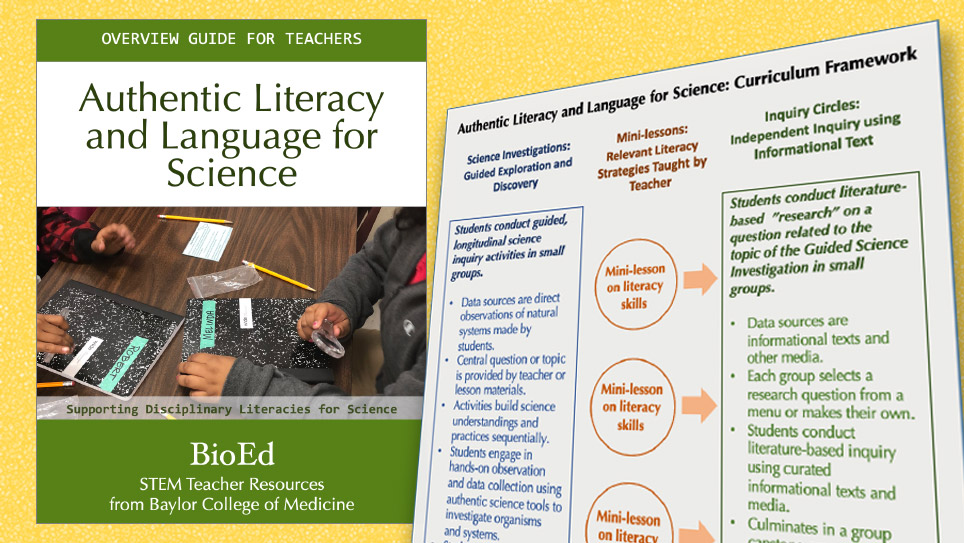Authentic Literacy and Language (ALL) for Science

Project Website(s)
-
Project Description
The ALL for Science project expands an instructional framework developed by the K-3 Stem Foundations: Life Science project. With the ALL for Science framework, students engage in two related forms of inquiry: 1) firsthand scientific inquiry based on a model organism or system following a learning cycle approach and 2) related text-based inquiry using existing real-world informational resources (reviewed for appropriateness prior to use). This approach emulates how practicing scientists connect their own investigations to the published literature and use information from multiple sources to advance their understanding. Students’ work in small groups is designed to enable language and skills development leading to legitimate participation by students in an incipient community of practice guided by their teacher.
-
Abstract
The Authentic Literacy and Language (ALL) for Science partnership is developing curriculum materials to authentically engage elementary school students in how scientists use language, while building students’ science knowledge and skills. Building on a previous project with demonstrated results with students in grades 2-3, ALL for Science is creating four curriculum units for students in grades 4-5 that integrate standards aligned life science topics, with development of students’ science specific disciplinary literacies, numeracy and related health content. Science themes for the units focus on areas of low student performance in life science and reading/writing in Texas. The project will engage a team of teacher leaders, scientists and educators to develop four Texas standards- and NGSS- aligned curriculum units, each designed to provide 3–4 weeks of life science inquiry-based instruction in school or as a blended school and home approach, with aligned reading/English language arts, health and numeracy. The curriculum units and supporting materials will be piloted in local classrooms; field tested through well-matched comparison group studies, with random assignment of groups; and disseminated via the established, high traffic website, BioEd Online (www.bioedonline.org), and through other pathways to reach state and national audiences with high quality, free teaching resources. The project directly will impact approximately 285 teachers and 6,840 students, with availability to teachers of more than 800,000 Texas students and national audiences. The ALL for Science units will be evaluated in urban schools with high enrollments of underrepresented minority and economically disadvantaged students. In addition, two Houston-area elementary schools (combined enrollment of more than 1,200 students) will serve as longitudinal implementation sites to gauge impacts on student achievement and formation of science identity, and teacher practices, while informing continued project improvement and local dissemination. We will measure changes in teaching practices and science teaching efficacy beliefs; and will examine growth of students’ content knowledge, science-specific disciplinary literacies and identity formation as members of a science community. This project responds to the SEPA program call for innovative curricula that will prepare students in STEM and enable their teachers to provide instruction using a novel approach. It addresses two of the three new areas of high programmatic interest: embedded math and reading content and adaptations of successful SEPA programs with new populations.
Project Audience
Elementary school students (grades 1-4) and their teachers
Subjects Addressed
Life science, reading, writing, ELA, science, teacher professional development
Associated SEPA Project(s)
-
K-3 STEM Foundations: Life Science
R25OD021865-01 : 06/01/2016 - 05/31/2021
Associated SEPA Publication(s)
-
Authentic Literacy and Language (ALL) for Science: A Curriculum Framework to Incorporate Science-Specific Disciplinary Literacies into the Elementary Classroom
Journal of STEM Outreach
Moreno N, Newell A, Sailors M, Garay D







